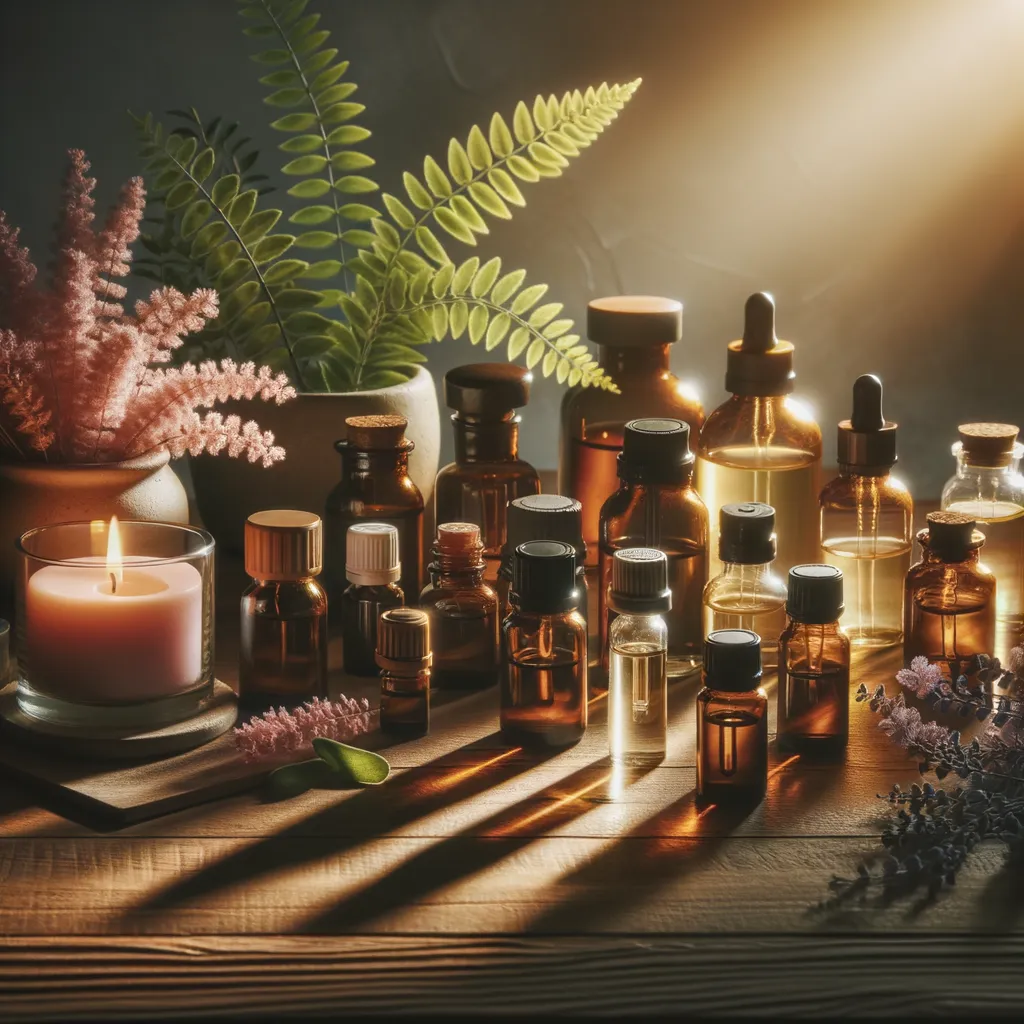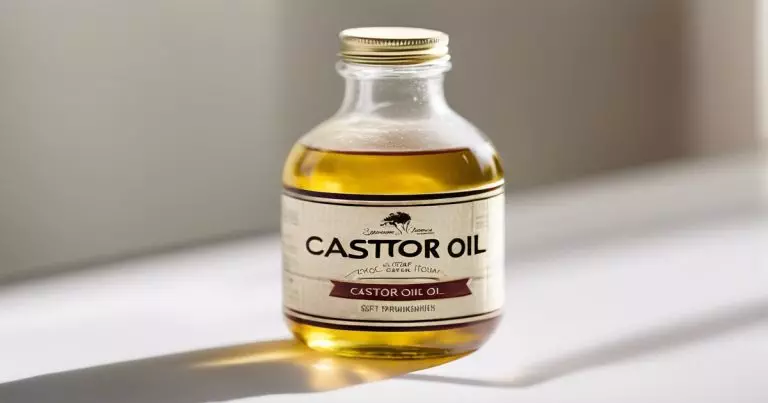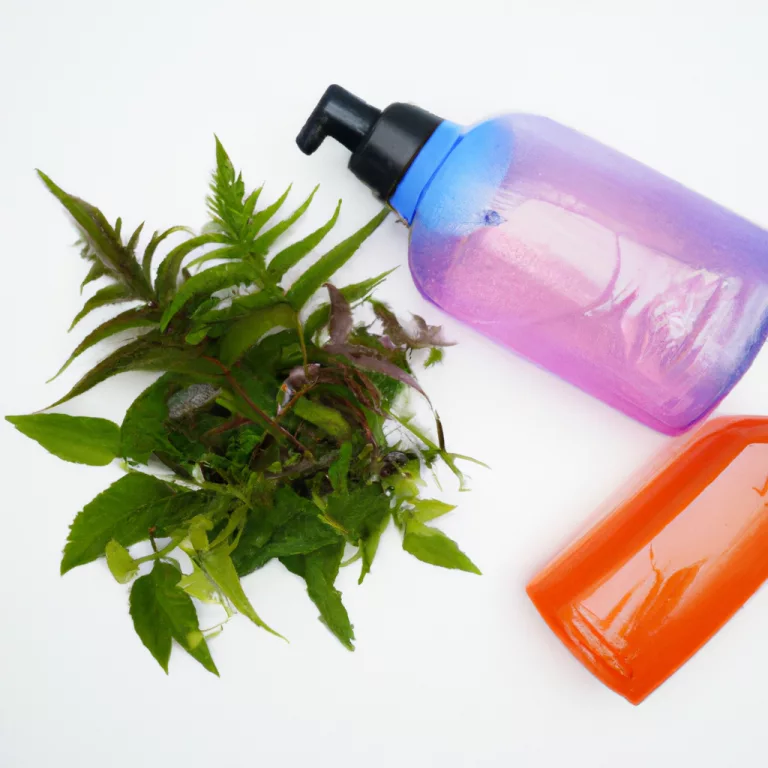Unlock the Secret Powers of Nature: Top 10 Antibacterial Essential Oils for Infection Prevention and Treatment
Key Points
- Infections occur when harmful bacteria or pathogens enter your body. They can target multiple systems and can sometimes cause life-threatening health complications. Recognizing various infections is an essential step in treating and preventing them.
- Essential oils such as tea tree, lavender, and eucalyptus are known for their potent antibacterial benefits. They provide natural methods to help prevent and treat infections and stand out as excellent natural alternatives to synthetic antibiotics.
- While each essential oil has a different benefits profile, the antibacterial qualities are important. For instance, tea tree oil has been shown to kill antibiotic-resistant bacteria, while lavender oil brings soothing and antibacterial properties.
- Essential oils can be incorporated into skincare routines and respiratory health regimens to prevent and treat infections. Beyond being simply antibacterial, they act as natural treatments for particular infections, emphasizing the need for targeted solutions for distinct conditions.
- Safety concerns are standard when using essential oils. However, you can reduce the risks by knowing how to dilute them properly, conducting patch tests, and consulting healthcare professionals.
- Scientific research has and will continue to lay the foundation for validating essential oils to ensure their effectiveness. It further addresses their antibacterial properties, underlining the importance of educated choices in health care practices.
- MAJESTIC PURE Lavender Oil; blend of two (2) pure lavender oil; Lavandula angustifolia from Bulgaria and Lavandula hybrida from France; steam distilled; Therapeutic grade; Packaged in USA
- Aroma: Best sampled on a test strip or tissue to allow the aroma to breathe, evolve and open up; top note with a strong aroma, it has a rich floral scent that is somewhat fruitier, mellower and less camphoraceous; Lavender oil is known to be helpful in soothing the mind and body when used in aromatherapy
- Safety Warning: For external use only. Other than aromatherapy, dilute with a carrier oil. For topical use, rub a very small amount on the inside of your elbow area to test for any allergic reaction before use, discontinue if irritation occurs; Avoid contact with eyes, keep out of the reach of children. If pregnant, consult with your health care provider before use
- MAJESTIC PURE lavender essential oil offers fresh fragrance that blends well with almost any other essence; the aroma becomes more flowery when it evolves
- Delivered with a premium quality glass dropper for ease-of-use
Last update on 2025-12-18 / Affiliate links / Images from Amazon Product Advertising API
Here are the top 10 antibacterial essential oils to help you prevent and treat infections.
These natural oils, extracted from different plants, have distinct characteristics that work to fight off harmful bacteria.
Tea tree oil is probably one of the best-known essential oils for its antimicrobial properties.
Lavender oil, with its antiseptic qualities, calms and protects skin.
Eucalyptus and peppermint oils provide a crisp, clean aroma. They also boost immunity and support overall health.
By the time we’re done, you’ll know how to incorporate these oils easily into your everyday routine.
Here’s to all your health-improving aspirations!
What Are Infections, Exactly?
Infections are caused by opportunistic pathogens such as bacteria, viruses, parasites, and fungi that infect and multiply in the body.
These intruders can wreak havoc on multiple systems, causing health issues that can put them in professional medical care.
A typical bacterial infection might manifest on your skin, lungs, or stomach.
It usually accompanies typical infectious symptoms like fever, chills, and fatigue.
Knowing whether infections spread through direct contact, airborne transmission, or contaminated food and water can be key to properly treating and preventing future infections.
The most prevalent kinds of infections are bacterial, viral, and fungal. Bacterial infections — like strep throat or urinary tract infections — are manageable to diagnose and often quickly treatable with antibiotics.
With antibiotic resistance on the rise, we have to be more mindful about not overprescribing these powerful drugs.
Infections caused by viruses (such as influenza) require antivirals or supportive care, while some diseases caused by fungi may need antifungal agents.
This awareness of infections goes beyond just the infection to prevention measures.
Prevention: Good hygiene practices—such as regular handwashing and getting vaccinated—can help protect children from infection.
Tea tree oil is one example of an essential oil with strong antimicrobial properties, including antibacterial, antimicrobial, and antiseptic qualities, making it a suitable complementary treatment.
Environmental factors, including chemical exposure, can negatively affect health, making people more vulnerable to infections.
Top 10 Antibacterial Essential Oils
Essential oils, such as lavender eo and eucalyptus eo, are powerful, natural alternatives to synthetic antibiotics, crucial in preventing and treating deadly infections.
Their versatility allows you to tackle multiple health concerns at once.
Here, I share ten essential oils known for their antimicrobial activities and extraordinary benefits and uses.
1. Tea Tree Oil: A Potent Antiseptic
Tea tree oil has been studied for its impressive antibacterial effects against various pathogens, including antibiotic-resistant strains such as MRSA. Its long-standing historical use as an antiseptic wound treatment and skincare further highlights its effectiveness.
Daily application could mean mixing them into diluted solutions for minor cuts or incorporating them into skincare products.
2. Lavender Oil: Gentle Yet Effective
Known for its calming properties, lavender oil is a powerful antiseptic with antibacterial effects, useful against gram-positive and gram-negative bacteria.
Use it in aromatherapy for stress relief and better sleep, or apply it topically to relieve skin irritations.
3. Eucalyptus Oil: Clear Airways, Fight Germs
Eucalyptus oil is excellent for respiratory health and actively attacks and multiplying bacteria strains. For this reason, we love using this natural remedy for colds.
You can use steam inhalation or diffuse it across the air for relief.
4. Peppermint Oil: Refresh and Protect
Peppermint oil is versatile. Its powerful antiseptic properties, used topically and in oral rinses, effectively combat several types of bacteria.
Its culinary uses extend from flavoring savory dishes and sweets to refreshing tea and serving as a natural cleaner for breath freshening.
5. Oregano Oil: Nature’s Strongest Antibiotic
Highly effective as an antibacterial agent, oregano oil possesses potent antiseptic properties and has a rich tradition in food preservation.
It works incredibly well for food poisoning and can be added to food or taken in supplement form.
6. Lemon Oil: Zesty Immune Booster
The immune-boosting lemon oil, a popular ingredient known for its antibacterial properties, can be a natural cleaner in skincare regimens targeted for treating blemishes and as a flavoring ingredient in food and beverages.
7. Cinnamon Bark Oil: Warm and Powerful
Cinnamon bark oil is considered a powerhouse antimicrobial oil, known for its potent essential oils and powerful antiseptic properties, making it ideal for natural home remedies.
8. Thyme Oil: A Herbal Defender
Thyme oil, a popular herb in herbal medicine, has a long history of traditional use and demonstrates powerful antiseptic properties against a broad spectrum of pathogens.
It can be utilized as a natural cleaner and immune system booster for overall health maintenance or culinary wellness.
9. Frankincense Oil: Ancient Healing Properties
Frankincense essential oil, a popular ingredient in traditional medicine, has impressive antibacterial effects and powerful antiseptic properties.
In personal care, it can help improve the appearance of dull skin and be incorporated into wellness routines using antimicrobial oils.
10. Geranium Oil: Balancing and Protective
Known as rose geranium oil, this oil helps balance hormones and is a potent bactericide and fungicide.
Lavender is phenomenal for skincare needs and wonderfully versatile, blending it into various personal care products effortlessly.
- Included in this Gift Set: Peppermint, lavender, eucalyptus, lemongrass & orange. essential oils gift set for aromatherapy diffuser.
- Certified Organic – Cliganic organic essential oils are proudly USDA organic certified to ensure ultimate quality and integrity.
- 100% Pure, Single Ingredient Oils – Cliganic organic essential oils are a single-ingredient product. No synthetic additives, ever.
- Non-GMO Certified, Vegan & Cruelty-Free – Free from additives, Cliganic aromatherapy oils are proudly non-gmo project verified, certified vegan and cruelty-free.
- 3rd Party Tested for Purity – Each batch of our essential oils is being tested for purity by a 3rd party independent lab.
Last update on 2025-12-18 / Affiliate links / Images from Amazon Product Advertising API
Essential Oils for Specific Infections
Essential oils are equally effective with each infection’s chemical nature, especially after considering the specific infection’s characteristics.
The right essential oil must be chosen and tailored to the particular type of infection to achieve maximum therapeutic advantages.
Oils with strong antimicrobial profiles, such as oregano, thyme, and lemongrass, pack a punch.
They work against prevalent bacteria like E. coli and Listeria innocua. Though essential oils can be very practical and readily available to treat infections, knowing how to apply them uniquely is crucial.
Combat Skin Ailments with Oils
Essential oils can effectively treat common skin conditions like acne, eczema, and even minor wounds.
For example, tea tree oil has incredible antibacterial and anti-inflammatory benefits, perfect for treating acne. Just be sure to use it diluted with a carrier oil to reduce the potential for irritation.
Lavender oil has been shown to help heal minor cuts and burns and support skin regeneration.
Adding these oils to your skincare routine can promote your skin’s health, offering a natural alternative to chemical-based treatments.
Ease Respiratory Issues with Oils
Eucalyptus and peppermint are essential oils that can effectively ease respiratory issues, including congestion and sinusitis.
Their decongestant and antimicrobial effects promote open airways and decrease inflammation. Inhalation delivery methods provide instant, therapeutic relief, such as steam inhalation and diffusing essential oils.
They provide almost immediate relief for cold and allergy seasons by making breathing easier.
Tackle Fungal Infections with Oils
Essential oils against fungal infections include tea tree oil and oregano oil, effective treatments for fungal infections such as athlete’s foot and toenail fungus.
These oils have been found to have antifungal effects by damaging the fungi’s cell membrane and preventing their development.
Diluted oils on areas affected by infection or irritation can clear up infections and heal any irritation, providing relief.
How Essential Oils Combat Infections
The results suggest that essential oils, such as lavender eo and eucalyptus eo, possess excellent antibacterial properties, making them effective natural antibiotics to prevent and treat infections.
Learning how these powerful antiseptic oils work and incorporating them into your healthy lifestyle will benefit your body.
Unveiling Antibacterial Mechanisms
Essential oils have a beneficial role in fighting bacteria on the cellular level. They can permeate bacterial cell membranes and interrupt metabolic processes, thus inducing cell death.
Volatile compounds, including terpenes and phenols, are key players in this antibacterial activity.
For example, tea tree oil’s active terpinen-4-ol demonstrates substantial activity against pathogens. Knowing these mechanisms can help you decide the best oils to choose for specific infections.
It will encourage you to learn more about lesser-known oils, such as oregano oil, which can be a potent antibacterial.
Essential Oils Boost Immunity
Essential oils can help you fight infections and mount a better immune response.
For instance, oils such as eucalyptus and lemon have demonstrated immune-boosting properties thanks to their antioxidant-rich composition.
Make these oils part of your comprehensive infection-fighting health routine.
Diffuse or add them to your bathwater, and you’ll upgrade your overall wellness!
For instance, lavender oil in your nighttime routine. This easy step is a significant stress buster, and it’s crucial since chronic stress is known to weaken your immune system.
Reduce Skin Irritation Naturally
Essential oils are powerful after-sun care products that calm and heal damaged and irritated skin. Chamomile and lavender are well-studied for their anti-inflammatory and relaxing properties.
This is especially true in sensitive areas, so dilute oils with a carrier oil before applying.
Skin conditions such as eczema and acne, to name a few, can benefit from the healing properties of these oils, leading to soothed, healthier skin.
- 100% PURE, PREMIUM QUALITY, UNDILUTED, AROMATHERAPY ESSENTIAL OIL: 100% Pure Eucalyptus Essential Oil; Great for Aromatherapy and Relaxation, in Glass Bottle.
- HIGH QUALITY GLASS BOTTLE PLUS FREE EURO DROPPER CAP: The Oil is shipped in high quality glass infused with a UV colored coating to protect essential oils against sunlight and degradation. It also comes with a free premium quality European Dropper Cap for ease-of-use for just a few drops of oil at a time.
- NATURAL ESSENCE – AMAZING BENFITS OF EUCALYPTUS OIL: It is ideal for clarity of mind, relaxation and clear breathing. Enjoy the scents of nature with our NaturoBliss Eucalyptus Oil. Bring relaxation, wellness, and a sense of satisfaction to your day!
- GREAT FOR AROMATHERAPY – Use NaturoBliss Eucalyptus Essential Oil for aromatherapy, massage, skincare, diffusers, homemade blends, bath bombs, laundry and use in homes, offices, and gardens.
- LIFETIME WARRANTY: If you are ever unsatisfied for any reason we will replace your product or refund your money.
Last update on 2025-12-18 / Affiliate links / Images from Amazon Product Advertising API
Use Essential Oils Safely
Learning to use essential oils safely is key to getting the most benefits while avoiding possible dangers. Incorrect application or dosage may result in skin irritation, allergic reaction, or other adverse effects.
Always dilute and use carrier oil when topically applying oils.
Carrier oils, such as coconut or jojoba oil, dilute essential oils’ potency, making them safer for your skin.
Topical Application Guidelines
Always dilute essential oils with carrier oils before applying them directly to your skin! Use 1-2 drops of essential oil per teaspoon of carrier oil.
When using essential oils on the skin, always do a patch test.
Apply a small amount diluted to a small area of undetectable skin and wait 24 hours to ensure no reaction.
This practice minimizes the risk of adverse reactions while allowing you to experience the oil’s beneficial effects.
Aromatherapy Techniques
Incorporating essential oils into your daily life can be simple, and aromatherapy is a great place to start. Diffusing oils like lavender and citrus oils can boost moods and promote relaxation.
Other inhalation techniques can be beneficial for respiratory health. For topical use, put a couple of drops of eucalyptus oil on a cotton ball. Breathe it in deeply for extra immunity power during cold seasons.
Steam Inhalation Instructions
Boil water for steam inhalation.
Afterward, add 3-5 drops of essential oil, bend over the bowl, and drape a towel over your head to catch the steam.
This is a fantastic way to care for respiratory problems, but choose safe oils for inhalation.
Compresses: A Soothing Method
To use essential oils to make a compress, combine several drops of essential oil in water.
Next, lay an old towel or rag on the tender muscles.
This technique is especially helpful in providing an initial dose effect in the case of pain relief.
Cautions for Oral Use
Because ingesting essential oils, such as eucalyptus eo or clove eo, involves risks, always consult a knowledgeable healthcare professional before considering this route.
DIY Recipes for Infection Relief
Making your infection relief remedies at home will help you start feeling like the master of your health again.
Learn how to use these potent compounds and make effective, natural solutions tailored to your needs.
Delight in all the benefits of nature’s goodies while at it!
These DIY recipes build on your daily health routine and inspire creativity when blending different oils to achieve more therapeutic effects.
Soothing Skin Balm Recipe
To make an all-purpose skin balm, add 1/4 cup of beeswax and coconut oil to a bowl. Next, add 10 drops of lavender essential oil to ease the sting.
Step 1: Heat the beeswax and coconut oil in a double boiler.
After fully melting, remove them from the heating element and stir in the lavender essential oil.
Pour the mixture into small containers and allow it to cool. This nourishing skin balm with lavender encourages healing and helps reduce inflammation.
Please keep it on the counter where you will remember to use it.
Cinnamon Hand Sanitizer Recipe
To prepare an effective hand sanitizer, add two tablespoons of aloe vera gel with one tablespoon of rubbing alcohol.
Finally, add five drops of cinnamon essential oil to give it a pleasant smell!
Combine the first four ingredients in a small bowl and pour into a squeeze bottle.
Cinnamon oil’s powerful antibacterial properties make it a great natural option to kill germs.
Apply this sanitizer to your daily routine, particularly after exposure to crowded public spaces.
Invigorating Diffuser Blend Recipe
Add three drops of peppermint, two drops of lemon, and 2 drops of eucalyptus for an energizing diffuser blend.
These essential oils are uplifting and energizing and support focus and concentration.
Pick scents that complement each other to produce a pleasant mixture. Use a quality diffuser to achieve the best results possible.
Antibacterial Room Spray Recipe
Combine 1 cup of water with 1 tablespoon of witch hazel.
After that, mix in 10 drops of tea tree oil to make an antibacterial room spray.
Because tea tree oil purifies the air, it’s effective in schools, daycare centers, and homes.
Use as an air freshener spray in enclosed spaces or on upholstery.
Sinus Relief Steam Recipe
To ease sinus discomfort, add 4 drops of eucalyptus oil to a bowl of steaming water. Huddle over the bowl, drape a towel over your head and breathe deeply.
Take this congestion-clearing steam solution. Make sure that dilutions and safety are considered from start to finish!
- Top selling essential oils set: We create our essential oils using rigorously tested ingredients. Top blends, make pampering a luxurious experience with our set of 6 10ml oils. Perfect for blending to make candle making scents, making DIY soap scents or a unique aromatherapy experience. Join 170,000+ customers who love our essential oils for diy crafts, aromatherapy and candle making!
- Plant-powered ingredients from around the world: Our team brings you the purest tea tree essential oil from Australia, eucalyptus from China, lavender from France, orange oil from Brazil, and peppermint and lemongrass from India.
- Extra Potent: Some essential oils can go rancid quickly once exposed to heat, light and oxygen. Our FrostProtect bottle keeps oil stable for 24+ months, so you can enjoy the benefits of your oils for longer.
- Steam-distilled and cold pressed for longer lasting aroma: LagunaMoon never uses nasty solvents like hexane or other toxic chemicals. We carefully distill our potent oils to preserve their fragrance for longer.
- Christmas Gift & Stocking Stuffer – A beautifully packaged essential oils set designed for holiday wellness, home fragrance & crafting. Features festive holiday essential oils and cozy, tree-inspired diffuser scents perfect for winter relaxation and gatherings. A thoughtful stocking stuffer for friends, family, teachers & DIY lovers.
Last update on 2025-12-18 / Affiliate links / Images from Amazon Product Advertising API
Precautions and Potential Risks
Understanding the precautions and other potential risks is key to using essential oils safely and effectively.
Though these oils provide excellent benefits, understanding their potential adverse reactions can help avoid complications.
Common reactions include skin irritation, respiratory discomfort, and potential interactions with medications.
By learning to identify these warning signs sooner, you can guarantee a safer, worry-free ride.
Understanding Skin Sensitivity
Essential oils have been known to create heightened skin sensitivity for certain people.
Performing a patch test is critical before applying it to the entire area, as this will help determine if there are any adverse side effects.
We know oils like cinnamon and clove oil can irritate already sensitive skin.
If you’re particularly sensitive, avoid the harsher varieties and opt for something soothing like lavender or chamomile.
Recognizing Phototoxicity Risks
Phototoxicity is a specific kind of toxicity related to reactions that happen when certain oils are exposed to sunlight.
Oils such as bergamot and lemon can burn skin if exposed to sunlight after application.
To prevent these risks, avoid sun exposure immediately after applying phototoxic oils. To be safe, try using these oils in the evening.
Addressing Ingestion Dangers
Ingesting essential oils, especially without the guidance of a qualified practitioner, can be dangerous. Before using any products orally, consulting with knowledgeable healthcare professionals is critical.
Should ingestion be inevitable, low dosages and procedural precautions must be employed to ensure safety.
Different routes of administration, such as topical use or diffusion, can provide the same therapeutic effects without some of the dangers of ingesting the substance.
Managing Respiratory Sensitivity
For those with respiratory sensitivities, subtle oils, such as eucalyptus, are great options for inhalation.
Many ways of consuming them minimize irritation, such as using diffusers rather than inhaling directly.
When safely used, adding essential oils to respiratory health regimens can promote respiratory wellness and wellness in general.
Scientific Evidence and Research Gaps
The present state of research on essential oils indicates an increasing interest in their antibacterial activity.
Studies have shown that oils like tea tree and oregano contain compounds that are effective against various bacteria, making them potential alternatives in infection prevention.
However, there are significant gaps in the scientific literature.
Most essential oils have very few clinical trials to prove their efficacy. This lack of strong evidence leaves their dependability in clinical environments questionable.
Key active compounds like thymol and carvacrol are important in determining how essential oils stop bacterial growth.
These compounds work by rapidly disrupting bacterial cell membranes, causing rapid cell death.
Understanding these interactions is key for effectively using essential oils in health applications. Exploring the “background players” might reveal even more potent antibacterial properties lurking within.
There are pros and cons when weighing the benefits of essential oils against conventional antibiotics.
Essential oils offer a holistic solution, one that, more often than not, carries fewer adverse effects.
However, they may be unable to replace standard antibiotics for life-threatening infections.
Informed decision-making is critical when choosing treatment options, as certain circumstances might necessitate traditional medications to achieve the best results.
Blending essential oils can make them even more effective against bacteria.
For example, combining eucalyptus and lavender oils could offer more excellent protection than the individual oils.
These pairings can be used in the real world to add versatility to health regimens, opening the door to more individualized and tailored methods of maintaining wellness.
Future research should aim to understand lesser-known oils and their mechanisms of action.
Understanding safety and efficacy across diverse populations is required to further this field and expand knowledge.
Better partnership opportunities and cross-sector collaboration among researchers and practitioners will help to renew innovation, creativity, and economic development.
Final Thoughts About Essential Oils
Natural antibacterial essential oils can be one effective way to prevent and treat infections.
Read about the top 10 antibacterial essential oils and how they can support your germ-fighting efforts and general health.
From tea tree oil to lavender, every oil has its advantages. You walk away with such practical tools for health.
You learn how these oils work and, most importantly, how to use them safely and effectively.
DIY recipes allow you to make your remedies using easily accessible ingredients.
As with all essential oils, make sure to practice safety and precautions.
The science behind these oils is still in its infancy, paving the way for many future discoveries.
Learn more about using this powerful natural remedy to keep your family healthy.
Experiment with these alternatives and see what works best for you. Begin your journey toward natural healing today.
- Stimulating tea tree essential oil: Refresh your home, office, or car our tea tree oil. It’s pure and ideal for candle making scents, DIY and cleaning products, detergents or aromatherapy experiences.
- Rich in active A-Terpineol: Our tea tree oil comes from melaleuca alternifolia tree leaves and contains ample amounts of α-terpineol. This component is where tea tree gets most of its purifying and refreshing properties. That’s why it’s especially valued for revitalizing home environments, enhancing scents in candle blends.
- Extra Potent: Some essential oils can go rancid quickly once exposed to heat, light and oxygen. Our bottle keeps oil stable for 24+ months, so you can enjoy the benefits of your oils for longer.
- Steam-distilled for longer lasting aroma: LagunaMoon never uses nasty solvents like hexane or other toxic chemicals. We carefully distill our potent oils to preserve their fragrance for longer.
- 100% Pure: We never dilute our oils, which preserves their uplifting and invigorating properties. Escape the everyday—create a new self-care ritual with LagunaMoon!
Last update on 2025-12-18 / Affiliate links / Images from Amazon Product Advertising API
Frequently Asked Questions
What are antibacterial essential oils?
Antibacterial essential oils, such as lavender and eucalyptus essential oils, are natural, concentrated plant extracts with antibacterial properties. They are used to prevent or treat bacterial infections and can be powerful tools for promoting health and wellness.
How do essential oils combat infections?
Essential oils, such as lavender eo and eucalyptus eo, fight infections by breaking down bacterial cell walls, preventing bacteria from growing, and increasing the immune system’s response with their natural antibacterial properties.
Can essential oils replace antibiotics?
Though essential oils, such as eucalyptus eo and clove eo, can be immensely helpful in preventing and treating infections due to their antibacterial effects, they shouldn’t replace antibiotics prescribed by qualified professionals.
How do I use essential oils safely?
Essential oils, such as lavender and eucalyptus, are very potent, so always dilute them with a carrier oil for safe use. As with anything, always do a patch test before slathering it. Do not ingest unless under the supervision of a qualified healthcare practitioner.
Are there any risks associated with essential oils?
Not everyone can or should use essential oils, such as lavender eo or eucalyptus eo, as some may experience allergic reactions or skin irritation. Pregnant or nursing women and those with chronic health conditions should consult a qualified healthcare professional before using these natural products.
Which essential oils are best for treating infections?
Tea tree oil, lavender oil,l eucalyptus oil, peppermint oil, oregano oil
Each offers distinct antibacterial properties best used to prevent or treat specific infections.
Is there scientific evidence supporting the use of essential oils?
Several studies have established that certain essential oils, like eucalyptus eo and clove eo, are effective and natural antibacterial agents. Further research is required to clarify their antimicrobial activities and fill current research gaps. Remember to turn to trusted information sources.












